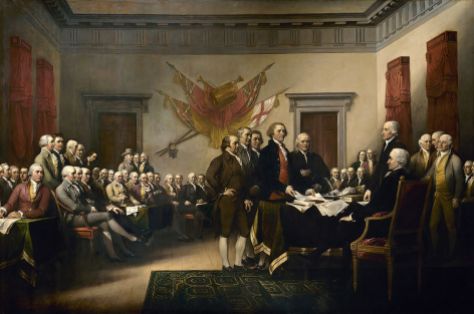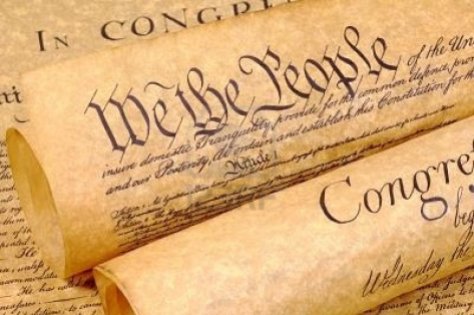
On this Independence Day, I cannot recall reading the Declaration of Independence much beyond the famous opening sentence that touts our “self-evident truths” and “unalienable rights.”
Reading this esteemed document word for word, I’m impressed with what astute authors this group must have been – no commoners here – using some pretty highfalutin words. And each particular turn of phrase seems to have a reason for being included (sounds like the goal of all good writers.)

When I do some quick research, I find some interesting facts:
- One key word in that first sentence, “necessary”, makes this parting of the ways with the British Empire not a convenience, a dalliance, or a casual farewell. Thomas Jefferson wanted to get his point across – these colonists had to do this – they were not ‘rebels’ but equals who sought independence.
- He goes on to call King George a tyrant, stating facts “submitted to a candid world.” So there must have been a hoard of honest folk out there who were open-minded, unbiased nice guys. And these intrepid document signers weren’t alleging, suggesting, or implying – they were putting their reputations, fortunes, and futures on the line – considering they’d be executed as traitors if ever caught.
- Then along comes the “chiasmus.” This verbal arrow was shot directly at British common folk who were “deaf to consanguinity.” (That last wowzer word means we’re descended from the same ancestors). But we would let them off the hook if we triumphed and would treat them “as we hold the rest of mankind, Enemies in War, in Peace Friends.” See that little flip? It’s a rhetorical switch which slows down the listener’s interpretation, forcing one to concentrate on the message.
- Last fact – this was the era of hand printing presses and laborious copy-making which resulted in two versions of the document, one with a very lengthy, albeit, a well-written opening sentence, and one where the printer decided to (oops) place a period in his version where originally there had been a semi-colon. And all authors know that little variation can mean a boat-load of differences in the interpretation of the words.
But it is a fine document that has stood on its own for 239 years and not too bad for a bunch of beginners. Good thing they didn’t decide to put it on the shelf and start on their next WIP. It could have been a looooong wait.